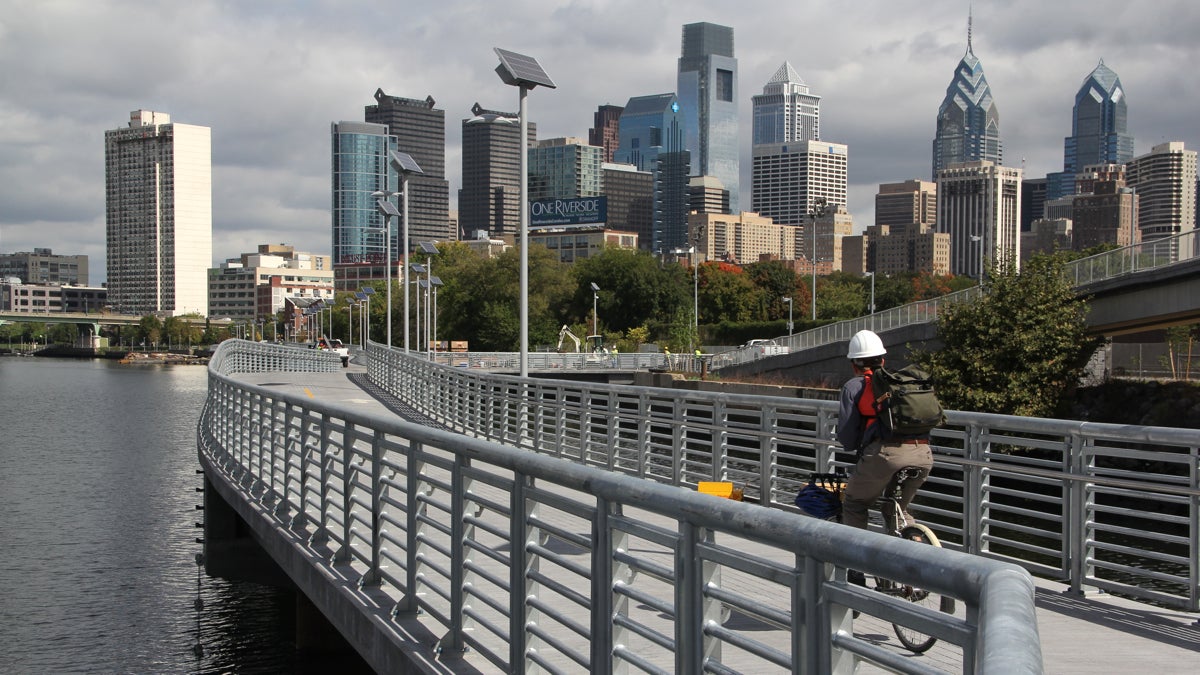Trying to lose weight? Drexel researchers review the best way cities can help

Schuylkill River Boardwalk. (Emma Lee/WHYY)
Cities across the nation, including Philadelphia, have added nutritional information to menus and are building bike share programs in an effort to combat obesity. But how effective are these approaches? A new review of the latest research suggests food bans and transportation upgrades are the most successful.
“Banning trans fats from restaurants or a school system banning the sale of soda, these types of policies were associated with improvements in healthy food purchasing,” said Stephanie Mayne, a doctoral student in epidemiology at Drexel University’s School of Public Health.
She reviewed 37 studies of so-called “natural experiments” to figure out the most effective public health strategies.
Not all of the plans are popular. Philadelphia, for example, considered a soda tax, but abandoned it in the face of strong opposition. And some ideas that make a lot of sense—such as adding supermarkets to neighborhoods served mostly by corner stores—might not pan out in practice.
“Supermarkets are often thought of as an indicator for healthy food access,” said Mayne. “But they also sell many unhealthy items, and it seems like providing access to healthy food doesn’t necessarily ensure people will buy it.”
Mayne said it’s too early to rule out a beneficial effect, but in two examples, solving the food desert problem didn’t result in people eating more vegetables.
“Behavior change is really hard,” she added. “A lot of the sort of low-impact interventions, like posting the calories on a menu, they’re pretty easy to ignore.”
Similarly, Mayne found that simply building more parks or trails doesn’t increase physical activity as much as improving a community’s active transportation options, such as adding bike lanes, bike shares, or new public transit systems.
That’s good news for Philadelphia, which is slated to begin its bike share program, Indego, later this spring.
There’s still a lot of research that’s needed, said Mayne. Few studies are able to evaluate whether policy changes or infrastructure additions actually result in weight loss, for example. But with the obesity epidemic still in full swing, she said cities should keep experimenting.
WHYY is your source for fact-based, in-depth journalism and information. As a nonprofit organization, we rely on financial support from readers like you. Please give today.

